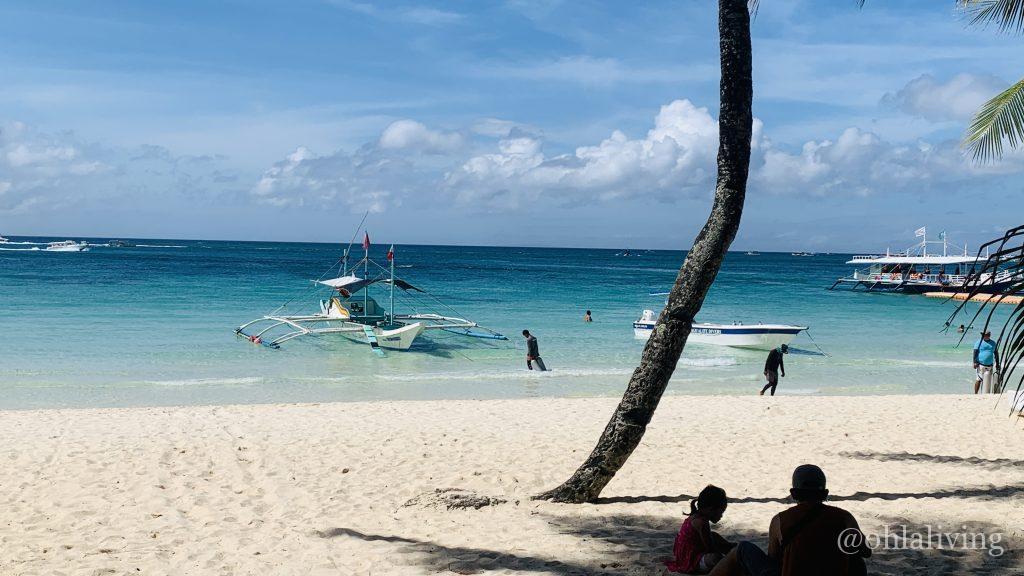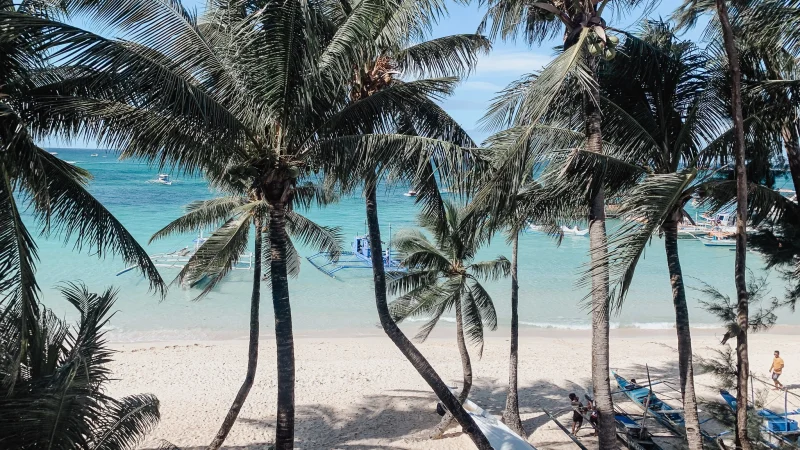Getting ready for your dream trip to the Philippines? So are we! As we plan our adventure I’m prioritising our well being by learning about travel vaccines required for the Philippines. On this post, I will be focusing on vaccine requirements from Spain to the Philippines. Trust me, a little prepping ensures that we can make the most of our time there without any health complications!
Exciting times! For the first time in 34 years, I’m heading back to my birth country. You might be thinking, “Why the long wait?” Well, life had its twists and turns. After having my children in my early 20s, both personal and financial commitments grew, pushing this trip to the back of my to-do list. But now, it’s finally happening!
It’s our responsibility
First off, let me clarify, I’m no medical guru. However, when my family and I were gearing up for our journey from Spain to the Philippines, I delved deep into understanding how to ensure our safety. If you’re contemplating a visit to the Philippines or any destination for that matter, it’s imperative to do your due diligence regarding travel vaccines. Researching and understanding the health precautions that resonate with you is key. After all, a bit of preparation goes a long way in guaranteeing a worry-free and enjoyable experience.
Vaccines are a good thing
Secondly, I’m a strong believer in the power of vaccines. They not only keep us safe from serious illnesses but also help protect those who can’t get vaccinated, like tiny babies. If you’re curious about the importance of vaccines and want to steer clear of unsupported anti-vaccine stories, there’s plenty of solid science out there. I’ve always ensured my kids receive their scheduled shots, and I genuinely appreciate having access to such care.
Travel Vaccines for the Philippines
Planning our upcoming journey, I had a chat with our doctor who pointed us to the vaccination centre in Valencia Centro de Vacunación Internacional in Valencia. Even though our trip is set for December 2023, we were guided to make an early appointment. So, in July, I hopped online, picked from the available dates, and secured a spot for September. If you’re thinking of visiting countries with health risks, it’s wise to book your vaccination appointment way ahead.

If you don’t live in Valencia, you can find out where your nearest International vaccination centre in Spain by heading to CVIs (Centro de Vacunación Internacional. Remember to make an appointment at the CVI closest to you 4-8 weeks before travelling.
Our appointment at the Vaccine Centre in Valencia
After securing a date and a time at the CVI I was sent an email confirming our appointment.
Before attending the consultation it was advised that we bring our up-to date vaccination records. More importantly if you have small children. This allows the consultant to see what vaccines had been given during the years, and if a booster is needed.
Come our appointment day, we met with Dr. Gladys who was keen to understand our travel plans. This was crucial so she could recommend the right vaccinations for both my son and me. Besides the vaccine advice, she also shared tips on self-care and things to be cautious of during our stay. We had a thorough 20-minute consultation, during which Dr. Gladys addressed our questions and provided valuable travel insights.
Once Dr.Gladys is satisfied that we understood the risks and preventative measures we needed to take, she wrote us a prescription of the recommended vaccinations. She suggested that we take the Hepatitis A, Typhoid and the Japanese encephalitis vaccines.
Travel Vaccines Required for the Philippines
Hepatitis A
Hepatitis A is an infection that targets the liver and is triggered by a particular virus. While it’s uncommon, it can sometimes be fatal. The infection can spread through consumption of water tainted with the virus or eating food handled by someone who’s come into contact with contaminated water. We ordered this vaccine at our local pharmacy and had it administered at our local medical centre.
Typhoid
Typhoid fever is a serious bacterial infection that can spread easily and can sometimes be deadly. It’s contracted mainly through ingesting tainted food or water. Even with the vaccine, it’s wise to steer clear of potentially contaminated food and water sources. We ordered this vaccine at our local pharmacy and had it administered at our local medical centre.
Japanese Encephalitis
Japanese encephalitis is a brain infection caused by a virus and transmitted via mosquito bites. Sadly, there’s no known cure, and it can lead to fatal outcomes. While it’s predominantly found in Southeast Asia’s rural zones, the Pacific islands, and the Far East, travellers rarely contract it. However, since our journey involved visiting my hometown which is in the provinces, the Dr. recommended that we get this shot.
Japanese encephalitis vaccines is unfortunately, not accessible in Spain. As a result, we were recommended to visit a trusted clinic upon our arrival in the Philippines to receive this vaccination. I have asked relatives to recommend clinics that offer this vaccine and it will be the first thing we do once we get there.
Rabies
Rabies might sound scary, but it’s pretty rare! It’s a serious infection that affects the brain and comes from bites or scratches by infected animals. The tricky part? Once symptoms show, it’s usually too late. So if you’re ever bitten in a place where rabies is known, it’s a race to the doctor! However, since we were heading to parts of the Philippines where rabies is not much of a concern, we decided not to opt for this vaccine.
Malaria
I did some digging to figure out if we needed antimalarial meds for our journey. Malaria, a severe disease spread by mosquitoes, can be life-threatening. From what I found, the risk of malaria in the Philippines is relatively low, even more so in the areas we planned to visit.
While antimalarial tablets can cut down the malaria risk by about 90%, they do come with some not-so-fun side effects. Given the minimal risk, we chose to skip the meds but amped up our bite-prevention game, especially when heading to rural areas.
Preventative measures, such as taking antimalarial medications, using insect repellents, sleeping under insecticide-treated nets, and wearing long-sleeved clothing during dawn and dusk when mosquitoes are most active, can reduce the risk of malaria transmission.
It’s essential to consult with a travel medicine specialist or clinic to get the most recent information on malaria risk and recommended preventive measures for your specific itinerary.
Remember, malaria risk can change over time due to factors like weather patterns, local control measures, and travel patterns. Always check the most recent health advisories before your trip.
What about you?
Have you visited the Philippines or are planning to? Which vaccines did you opt for when traveling from Spain to Philippines? And what’s your stance on the vaccines I’ve mentioned above? I’d love to hear from you, and I’m here to answer any questions about our journey! ☺️













1 comment